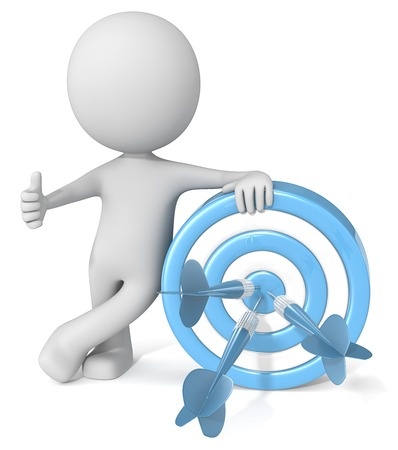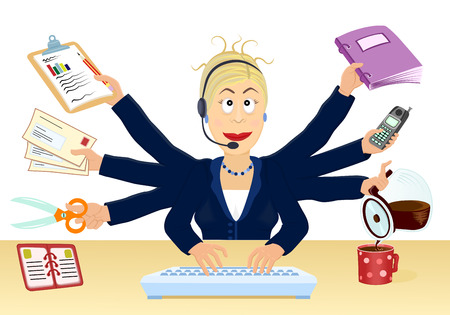The Myth Of Multitasking
People think they can multitask. People are wrong. I’ll not bore you with the research (just yet). Instead, let’s play a game to demonstrate the evils of multitasking.
Multitasking Game
Set up: You need a metronome on a 1-second beat (try this one) and something to write with and on.
Round 1: uni-tasking
This is a working memory exercise where you will need to remember a string of numbers. Look at these numbers for 15 seconds.
1 6 9 2 0 4 3
Start the metronome. Look away from the screen and write the numbers down on the beat of the metronome. The aim is to write down a digit every second. How did you score for accuracy?
Round 2: uni-tasking again
This time it is even easier (though I would say that – I have working memory problems). This round has no memory involved, just simple maths. Start the metronome. On every beat look at the numbers below and add 3 to each and write it down. Just retain the units and forget the 10s. In doing so 7 becomes 0 and 9 become 2.
3 1 8 5 9 2 0
How did you score for accuracy? Did you find it easier, harder or about the same as the first exercise?
Round 3: here comes the multi-tasking
We are now going to merge these two simple exercises into a single exercise. This is to simulate multitasking. We will be exercising out working memory and our simple maths processing at the same time. This is nowhere near as complicated as participating on a conference call while checking email (and secretly browsing facebook). This should be easy right? Study these numbers for 15 seconds.
3 6 1 9 2 8 0
On the beat of the metronome without looking at the screen write down the +3 sequence of numbers from memory.
Hard isn’t it? You are switching between two really simple exercises. Context switching has a high overhead. Imagine what this would have been like with a more demanding pair of tasks.
The Results
How do your round 3 scores for accuracy compare to the earlier rounds? You might not have noticed but it is likely your heart rate elevated and your perspiration increased as you multitasked in round 3. If you noticed the dip in your performance from the first 2 rounds of the game then your anxiety levels might increase too. This is a small example of the undue stress multitasking causes.
The disease of busyness
There is a perverse notion in many business circles that busy is good. Busy is often used as a signifier of importance. It is as if people believe busy is a desirable quality. Multitasking allows us to be even more busy. Busy is not effective. Being busier is not being more effective. I could invoke Drucker here “There is nothing quite so useless as doing with great efficiency something that should not be done at all” but that would overlook the point that multitasking is not even efficient.
Increasing productivity
If you want to be more productive multitasking is not the way. I’ll define productivity as progress to your objectives per unit time. The easiest way to increase productivity is to take your most important task and focus on making progress on that. I’ve got more advice on how to do this on my managing workload and priorities post.
Research suggests that multitasking can impact productivity negatively by up to 40%. If you want to get done by Wednesday what used to take you all week at work: stop multitasking and do just one thing at a time. Use the other two days to learn new skills, strengthen your networks and tackle those projects you never get around to.

Processing similar tasks in batches is another route to productivity. This is an approach for admin related tasks. As you get in the flow your pace picks up. You don’t need to switch contexts and everything you need is to hand. Which leads nicely on to email…
Keeping on top of email
Keeping an eye on email is like the +3 task. It is not difficult. It is, however, stealing attention. Many people are lost in email. Email is one of those things that is causing people to have constant partial attention. This keeps stress levels elevated which in itself deprives us of the ability to do immersive creative work and complex problem-solving.
If you want to be more effective with email process it in batches. Schedule 2 or 3 sessions a day and process your email in priority order. If there are things that need further work schedule them as tasks. At the end of the allotted time close your email client and move on to a different task.
Multitasking and memory
The book Moonwalking with Einstein explains that focus is important for memory. Round 3 of the game above hopefully demonstrated that multitasking (adding 3) taxes the working memory. The effects go much deeper. The amount of attention we devote to something determines the likelihood of it being stored in long-term memory. Multitasking does not just steel performance now it also steals future potential performance.
Context switching
When we think we are multitasking we are in fact context switching. For some simple tasks, we may be able to switch contexts very quickly. As tasks become more complex the cost of switching gets higher. As we get older we are likely to find this context switching even hard harder.
Multitasking is bad
Multitasking prevents us from doing deep work. It reduces creativity and it reduces quality leading to increased rework. The human brain can’t multitask cognitive tasks it can only context switch. This constant context switching consumes finite resources within the brain reducing our ability to focus and block out distractions.


Pingback: Auditory Processing Disorder – Differently Wired